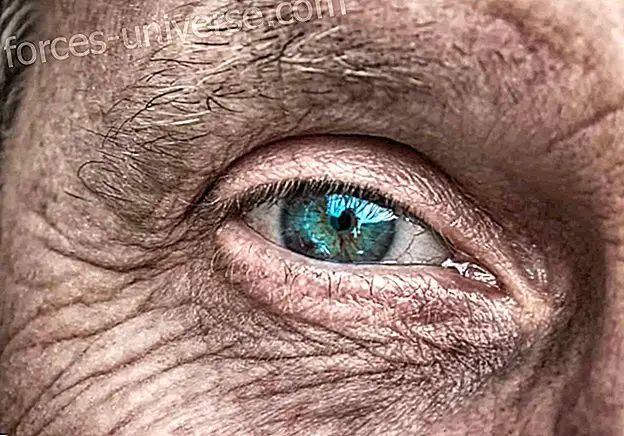Anxiety disorder spreads subtly, and is already one of the most frequent causes of work leave. Anguish must know how to cross it as a sign of the radical question of each one about the most ignored sense of his life.
 Anguish - which is not the same as fear, nor depression, not even the panic attack with which it is often related - spreads like a pandemic in this 21st century. More widespread than you might think, perhaps precisely because you live in silence. A disorder - or perhaps an alarm signal - of uncertain therapy, which is related to desire, and to our perception of the Other.
Anguish - which is not the same as fear, nor depression, not even the panic attack with which it is often related - spreads like a pandemic in this 21st century. More widespread than you might think, perhaps precisely because you live in silence. A disorder - or perhaps an alarm signal - of uncertain therapy, which is related to desire, and to our perception of the Other.
Palpitations, cold sweat, chills, trembling, dizziness, choking, knot in the stomach, feeling of madness, imminent death ... These are the most visible signs of the clinical picture called anxiety disorder, in whose classification we find from the panic attack, passing through stress, even the most diverse phobias. It has become today one of the most common diagnoses, often associated with depression, to the point that it has deserved the title of the silent epidemic of the 21st century. As health managers remind us, it is today one of the most frequent causes of sick leave. Faced with its progress, as subtle as unstoppable, a wide therapeutic arsenal has been deployed: psychotherapies of various orientations, with suggestion techniques, relaxation and breathing exercises, repeated confrontation and exposure to the feared object ... All accompanied by the timely medication with anxiolytics, whose consumption has increased exponentially in recent decades. Result: although some therapeutic effects are achieved on the one hand, passengers too frequently, on the other the epidemic continues advancing impassively, moving from one sign to another, like an alien who always knows how to hide somewhere on the vital ship of the subject to reappear, shortly after, where he least expected it.
"I'm not so afraid of flying by plane anymore, " a young woman told me that she had used one of these methods, "but now I feel a tremendous emptiness every time I have to separate from my mother." "It is an invisible sword that pierces my chest, " a man told me, and it was, in effect, a sword of nonsense that split every moment of his daily life.
We then verify this fact: the more therapeutic effects are attempted to occur directly on the manifest signs of the epidemic, the more it returns with new signs. And he returns to reveal an experience that runs in silence, a unique and non-transferable experience that has long been called with this term: anguish.
The subjective experience of anguish is, in effect, distinct and irreducible to any of the signs that attempt to describe it and that only indicate some of its manifestations. The subjective experience of the anguish remains in the most intimate silence of the subject as something indescribable, without concept, it does not get caught by any mental gymnastics, by any suggestion more or less coercive to the object that causes it. Beyond the signs in which the silent epidemic expands, the silence of anguish is, itself, a fundamental sign that the subject receives from its most intimate jurisdiction with these questions: what do you want? What are you finally, both for those you love and for yourself, once confronted with that silence that shakes you deafeningly? The sign of anguish then takes on a provocative agent, a sphinx that poses to each subject the most accurate question about their being and their desire. So many long-held ideals and that question had been buried under its excessive noise.
The anguish then manifests itself as the sign of an excess, of a too full one in which the subject of our time lives, flooded by the series of objects proposed to his desire. It is the sign that a bit of emptiness is needed, that the lack is needed, as the psychoanalyst Jacques Lacan said long ago in his seminar dedicated entirely to that strange affection, Anguish.
It is interesting to underline that the science of our time has detected this excess on its other side, rather as a defect, as an insufficiency. He has detected it in the so-called genomic delay of the human being, as the ultimate reason for the growing signs of his anxiety. What would this delay consist of? Human civilization would have transformed the world so quickly that our genetic support would not have had enough time to adapt to it. The clock of our organism would thus have a genetic delay, anchored as it would be in its responses to a reality that no longer exists. We will say on our part that this delay can only be understood if we consider it with respect to the subjective time that we can define as the time of the symbolic, the time of a civilization that demands an immediate satisfaction of the drives, the time of a world that demands each more quickly, more immediate satisfaction, always a little more ... 'My God, give me a little patience, but let it be right now!', said a story that follows the same logic as the subject who arrives today distressed to our consultations . This feature of temporary urgency, right now, has its translation into a spatial feature, in a too full one. The reality of the anguish is thus a reality that seems to be lacking the necessary emptiness so that this excess does not end with its own existence, with its cohort of virtual objects where everything must be within reach, yes, right now.
We should then understand the effect called genomic delay rather as an inverted effect of this excess, product itself of our civilization, of its symbolic machinery. It is to this excess of noise that the deafening silence of anguish responds in a unique way in each subject. And before him, it seems as useless to run away as trying to adapt with more or less coercive, more or less suggestive, ways that always move him to another place.
The anguish, unavoidable, must be traversed by taking it as a sign of the radical question of the desire of each subject about the most ignored sense of his life. But to answer this question, first you have to know how to give the word to the silence of anguish, you have to make it speak in each subject, one by one. Sew nothing easy at a time when there are plenty of slogans and protocols to silence it again. Only from there, however, the anguish will free us the wise secret of which it is a response, even if it is always with its time of precipitous urgency.
By Miquel Bassols
Source : http://divaneos.com/la-epidemia-silenciosa-3/
http://www.lavanguardia.com/
Anxiety disorder: The silent epidemic






